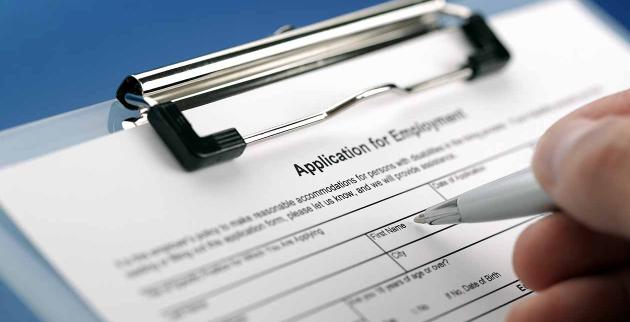Job seeking and work safety

Staying safe at work is important at all ages. But young people may be more at risk. This is not just because they have less experience. Young people can also be too confident, or too nervous. They may also worry about asking for help.
But safety is everyone's responsibility. If you have a concern:
- stay calm, but speak out clearly
- ask for guidance, and listen to advice
- follow instructions, and share information as needed
Instant expert: As a younger worker, there are rules about how many hours you can work, especially if you are studying. Find out about your rights when working.
Safety while job-seeking
Safety starts before you get your job. When you are looking for work, think safety.
Safe and approved channels like this website, Job Centres, employment agencies, the Apprenticeship Finder and major recruitment websites will contain safer opportunities.
When you are are looking for work, whether it is your first job after school, or part-time work alongside study, always:
- Talk about the job with a trusted adult and see what they think
- Investigate the opportunity to check that it is genuine (for example, visit their website, call them)
- Make sure a trusted adult knows where you are going and when you should be back
Crucial: When you are looking for work, make sure you find out about job seeking safety. Online scams often target people looking for jobs. Which report that young people aged under 25 are most likely to be targeted.
Getting your first Job
For many young people, their first job comes from someone they know, or a place where they have done work experience or volunteered. This is a very safe way to find work, as you already know the people or the workplace.
But most people need to go into a brand new space to find work. This can go very well, but there can also be problems.
Remember, it is not just an opportunity for a workplace to decide if you are suitable. It is also your opportunity to decide if you like the workplace. If you have concerns, say you will let them know later, and talk to your parents or an adult you trust.
Be alert: Scammers sometimes pose as people offering jobs and careers. One of the more famous scams targets young people who want to be models or actors. The scammers demand an upfront fee or payment for portfolio or representation services. Find out more from Action Fraud and www.gov.uk.
Safety in the Workplace
Employers have the primary responsibility to protect young workers. But all workers need to be aware of health and safety issues.
By law, employers are responsible for protecting young workers. This includes carrying out risk assessments, and providing training and supervision.
Young people have the right to safe and healthy work, the right to ask questions, and the right to refuse to do work that is unsafe.
Young workers also have responsibilities:
- to co-operate with their employers on health and safety issues
- to follow safety procedures to protect themselves and other workers
- to use the protective equipment and clothing that they are given.
To keep safe, young workers should:
- be aware of their rights, and make sure they are working legally
- not carry out tasks until they have been properly trained and follow the training they have been given
- know what to do in an emergency
- be confident in speaking up if there is a problem or they are unsure of something
The kinds of work you can do depends on how old you are. Find out more about Working legally.
Crucial: Young people with disabilities, learning difficulties or special educational needs can access extra support at work, or find roles suited to their abilities. Speak to an adviser or the EET Support Service.
Bullying and harassment at work
Bullying at work is any unwanted behaviour that makes a worker feel uncomfortable, upset or scared. It can happen without other people noticing. Your boss or employer might not be aware. Examples of bullying at work:
- Insulting someone or being cruel, face-to-face or by phone or email
- Spreading rumours, or telling lies about someone
- Ignoring or excluding a person
- Being unfair
- Undermining a good worker with criticism
Harassment is unwanted behaviour related to one of the following: age, disability, gender reassignment, race, religion or belief, sex and sexual orientation.
Harassment is against the law, under the Equality Act 2010.
Challenging bad behaviour at work
Younger workers can find it harder to challenge or report behaviour in the workplace.
But by taking action you can help your organisation be a safe and respectful workplace, and improve the working environment - for everyone.


